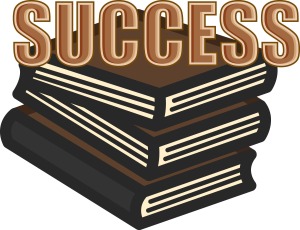How many pages should my book be?
 Whenever you start a book project you need to know who you are writing the book for and what outcome you want to achieve as the author.
Whenever you start a book project you need to know who you are writing the book for and what outcome you want to achieve as the author.
Most importantly what does your book audience want to read and in what format(s)?
Do they want standard size print books or skinny print books?
Print books, audiobooks or eBooks? As an author you may decide only to produce your book in a certain format for various reasons.
I often am asked how many words or how many pages a book should be. In my mind it all comes down to why you are writing your non-fiction book and who is going to benefit from, and therefore want to read your book.
How Many Words
I think it can be difficult to know how many words 50,000 is, in relation to pages in a book. And books come in all different sizes.
My answer to this question, of how many words or pages in the non-fiction arena is does your book answer the questions your reader has come for?
Also is it well written, easy to read and polished, or full of errors and lacking the content your readers want or need? It needs to answer the question they are looking for otherwise you will have frustrated and unhappy readers.
Skinny books can be around the 20-30,000 words and more standard paperback books anywhere between 50-80,000 words depending on the inclusions you have in your book such as images, photos, tables, charts and graphics, will determine the length of the book. However for eBooks there is no minimum word count.
Take a look at Amazon kindle and you will see eBooks ranging from 5000- 100,000 words. What does your audience want?
Pricing
Of course pricing will be different for the various formats and differing book lengths. Some new authors distribute their first book for free in eBook retail sites to build a following and aim to sell their subsequent books.
Print books vary from $10-$30 generally whereas eBooks are often 0.99c-$2.99 in eBooks stores.
Pricing can be part of an overall marketing strategy that authors use. So there can be a lot to consider depending again on why you are writing your book, therefore you need a clear plan. I am not sure your reader will be too keen to pay $9.99 for a 10,000 word eBook though.
Some authors package their book with other products and sell for a much higher price tag due to the perceived value.
Strategy is key
In the ‘how to’ non-fiction genre it is more acceptable that your book simply answers the questions that your readers are looking for the answers too. Particularly if it is an eBook that you can digest the same day. If your topic is more complex then obviously your book will include more content.
Will you be better positioned if you have multiple skinny books rather than a single book with more information.
If you wanted to write about hair for example, you might have a book on ‘up styles’, another on ‘straight styles’ and another on ‘curls and wavy styles’. Your audience may be looking for a quick solution on a very specific topic.
That way someone wanting to know about only wavy styles gets what they are looking for.
In this example your strategy may be to start with an eBook with hyperlinks to your videos demonstrating exactly how you style the hair.
Single Book or a Series?
There is different thinking around this. Some publishers suggest authors put everything in the one book and make it a great stand alone book. They recommended you don’t write a skinny series and leave things out of one book that may diminish your first book. Kind of like first impressions count.
Others say don’t put it all in one book, keep it short and to the point and split the specific knowledge over a series of skinny books. But what if you don’t write the next one?
This might work if you are positioning yourself as a serious author and a volume of published books is more important. Again, it depends on your intentions and why you are writing your book and the topic.
Does a skinny print book have the same credibility as a full size print book? What about an eBook compared to a print book?
My Book Series
My Millionaire book series are available in physical bookstores, so the SPINE thickness is important as I want it to stand out on the shelves. There is a limit to the size of the spine if you want to be able to print on the spine or bind a physical print book in a certain way.
Thin and skinny books can be very lost in a physical bookstore unless they are facing out.
I also have a successful formula where I interview the same number of people who share their inspirational stories, so in my case the book is a more substantial size (around 350pp)
I also post the books sold on my websites, so I aimed to keep them under the 500g postage weight limit, as in Australia, after 500g the next size up is 3kg, and up goes the postage prices with the book weight. Paper stock and weight of the cover material can also affect the overall weight of the book. So if you are producing a print book you may want to consider this.
My books are also available in most eBook formats and PDF for those that want to get access instantly. Each chapter is also available as a stand alone PDF.
My strategy was very clear from the start as to what I was producing and why. Do you know your outcome?
eBooks and SPINES
If the book is in eBook format, the size of the spine of the book is irrelevant- it won’t even have one unless it is also a print book. eBooks usually require no thought to the spine and in most cases the back cover is non existent as well.
For an eBook it is more important to have a great book cover and keep your interesting content at the front of the book.
Your strategy and reason for writing the book is important.
- Do you intend to produce a physical book and have it available for distribution?
- Are postage charges an issue?

- Is your book a lead generator /client gift to give out, or sell at the back of the seminar room?
- Is your eBook for income and/or a lead generator on online stores?
- Are you writing one single book?
- Will you be better positioned as an expert if you write a skinny book series?
Author Platform and Credibility
As a new author I think it is really important that you are building a platform as a professional, so producing the best quality book is important. No one will take you seriously if your book is riddled with errors, and the cover is not professionally designed.
Ensure you take the time to plan the best strategy for you as the author whilst meeting the needs of your reader.
The simplest way to publish is an eBook- you can easily make changes and you don’t need all of the design elements of a print book, or the budget- so start there.
The most important thing is that you publish your book. After all it doesn’t matter how many pages it is if you don’t publish it.

Share your message. Make a Difference. Leave a Legacy
Fiona Jones
9 times Best-selling author of The Millionaire Books and co-founder of Author Express
www.AuthorExpress.com

Comment (1)
whoah this blog is magnificent i really like reading
December 8, 2014 at 6:17 amyour posts. Stay up the great work! You already
know, a lot of persons are hunting around for this info, you could help them greatly.